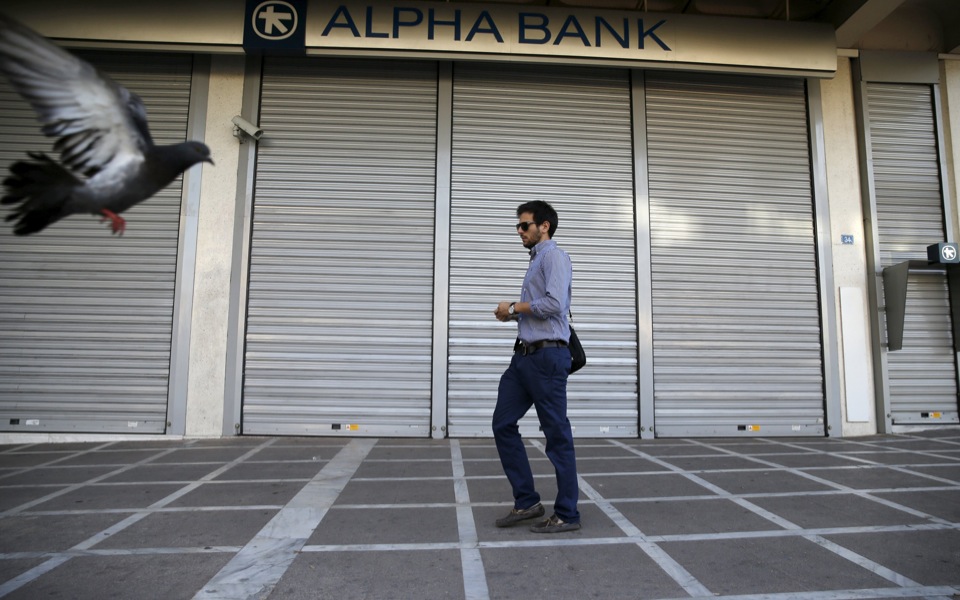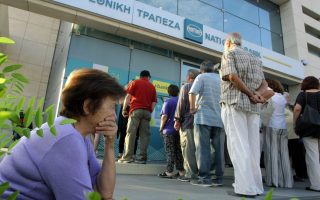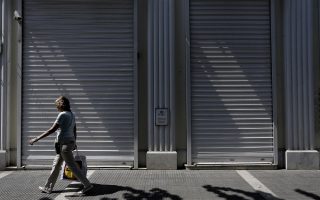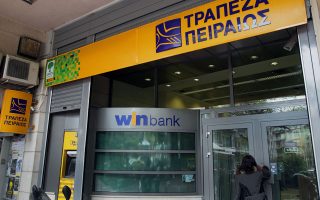Deposits trickling, not flooding back into Greek banks – sources

Deposits are trickling back into Greece's banks, banking sources said, offering some practical justification for a mainly symbolic move by Athens to cut the system's reliance on emergency central bank funding.
But there is as yet no evidence of the substantial inflows – notably of householders' hoarded 'mattress cash' – that might encourage the Bank of Greece to push for a bigger funding cut, they said.
Closed for much of July, Greek banks have been kept on a funding drip by the European Central Bank for most of this year and Athens, which is on the verge of clinching an 86 billion euro ($95 billion) international bailout, is still limiting cash withdrawals to prevent a run on deposits.
Hoping to shore up confidence in the lenders, Greece asked the ECB late on Tuesday to cut its Emergency Liquidity Assistance (ELA) to 89.7 billion euros from around 91 billion, arguing that the system had amassed a big enough buffer as confidence returns following the bailout agreement.
Banking sources said a buffer had been built up, though this was mainly a reflection of capital controls preventing money from bleeding out.
"There is money coming into the banking system that cannot leave immediately," a senior banker, who asked not to be named, said. "But it is not that we are seeing any sizeable return of mattress cash, not yet."
There was a liquidity buffer of around 5 billion euros that has stayed fairly constant for several weeks, with some fluctuations, another source said.
"Corporate inflows have improved the system's liquidity. Firms are bringing back cash they tended to hold in vaults or at security companies and depositing it back into the banking system," a third banker said.
"(But) we are not seeing the start of a wave of hoarded cash coming back."
The decision by the Bank of Greece to reduce the relatively expensive ELA lifeline was intended as a signal of confidence that Athens would not need more liquidity and was planning further reductions, a source familiar with the decision said.
Recapitalisation
Still, the crisis is far from over for Greek banks as they have to pass tests of their financial health before they can get the 25 billion euros set aside for their recapitalisation in what will be Greece's third rescue package.
Although authorities said they would give private investors a chance to take part in their recapitalisation, existing shareholdings will be substantially diluted and banks' future earning power will be weak given Greece's recession, limiting the deal's attractiveness for the private sector.
"I cannot talk for every other investor, but it is highly unlikely that I will give a single euro, or drachma or whatever the currency is, to Greek banks," Paul Vrouwes, senior investment manager at NN Investment Partners – formerly ING Investment Management – said.
"We cannot rely on the economy, so we cannot trust these banks," he added.
Most of the shares in Greece's top banks – National Bank of Greece, Eurobank, Alpha Bank and Piraeus Bank – are held by rescue fund HFSF, supplemented by a few private investors that took part in previous rounds of recapitalisation.
"If they want any kind of private sector participation or funding of Greek banks in the future, then they can't burn all the people who gave them money last year," a UK-based Piraeus shareholder said.
"Shareholders could get diluted in a very unpleasant way, but bear in mind that the price to book is already very low, and even if new money comes in at a discount to book value, then it's probably not the end of the world."
[Reuters]





